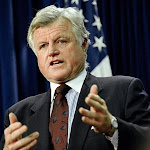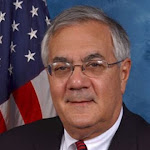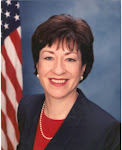
Being a party loyalist entails general support of the party platform, it entails supporting the nominees to your party even if you disagree with a certain item they are running on, and most importantly it entails rebuffing them when they've messed things up.
When getting asked recently what went wrong with Health Care reform that it went from what seemed like an inevitable fate inspired passage of the bill to such an ambiguous and gloomy mentality that perhaps we are on the cusp of repeating 1994, the answer really could not be much clearer.
We took an incredibly successful 2008 election and ended up widely committing an error that many have incorrectly tried to attribute solely to Coakley in the Massachusetts election. We've taken a decisive election and a filibuster proof majority and fed off of ourselves this feeling of entitlement of this being our time, as if we had no need to continue working for the policy initiatives we feel are most necessary to restore a strong America.
This was evident in op-ed pieces on the Huffington Post, Daily Kos, New York Times, etc.
Democrats and the White House truly took for granted the 60 vote filibuster proof majority and continuously wasted time and effort that could've seen the health care reform bill passed by the original August 2008 deadline.
How could we mess up so bad? I think the answer is somewhat obvious.
Scott Brown used the tactics we should've used to have kept up the 65% of people supporting "Obama-care" in getting elected. Populism got dems elected in '08 but for some reason decided to abandon that this year. People are hurting just as bad as they were in the fall of 2008, if not realistically worse because of dire unemployment numbers.
It would've been easy as pie to have shaped the debate using populism as a cornerstone. The people elected the first grassroots candidate to the White House, the people made universal health care possible. It could easily have been marketed as a big win for the middle class by the middle classes; a win by the people, for the people.
For some strange reason, the administration and congress decided to let republicans, the tea party movement, and everyone else define the debate by doing these town halls instead of outright campaigning for the bill and championing it as a populist and popular idea that everyone in this country should have health care.
There was no real attention brought to how many jobs could be created with the passage of the bill, there was no effort to get Americans on board. It was simply assumed the support we began the debate with would stay, but why we would have made such a terrible assumption is beyond comprehension.
This administration really faltered and made a similar mistake that Bill Clinton did in failing to shape the narrative. Being reactionaries and offering those types of arguments only after republicans and others had begun their opposition really left democrats in the dust. It put needless congressional seats in danger and the bill's future in real doubt. This was a flat out strategic failure.
To the President's credit, his reunion with the populism that had gotten him elected will likely drive up his and democrats approval numbers in the near future if they can do right this time what they did wrong during his entire first year. The Huffington Post is reporting that the President and the House of Representatives will hold deliberations about passing the Senate bill and using reconciliation in public; something that should've been done from the start and has hurt the entire process.
This effort is not dead, but to say anything less than “we f***ed up” would be a complete understatement. This Massachusetts election has really brought democrats down to earth. Maybe we can finally take the job of governing with new resolve and a realization that power isn't everything.
America sure needs real change in Washington.
































































